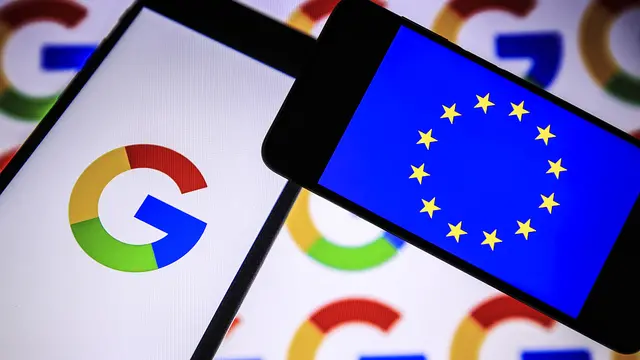European Union countries and EU lawmakers on Thursday reached a deal on landmark rules to curb the power of U.S. tech giants, including Alphabet's Google, Amazon, Apple, Facebook and Microsoft.
France, which currently holds the rotating EU presidency, said in a tweet that there was an agreement. EU industry chief Thierry Breton also confirmed the same in a tweet.
Proposed by EU antitrust chief Margrethe Vestager just over a year ago in response to the slow pace of competition investigations, the law, named the Digital Markets Act (DMA), sets out a list of dos and don'ts for online gatekeepers that control data and access to their platforms.
"What we want is simple: fair markets also in digital. Large gatekeeper platforms have prevented businesses and consumers from the benefit of competitive digital markets," Vestager said in a statement.
"This means that the time of long antitrust cases, during which the authorities were lagging behind the big tech companies, is over," said EU lawmaker Andreas Schwab, who had steered the debate in the European Parliament.
The DMA sets out rules for online gatekeepers – companies that control data and platform access.
It will cover gatekeepers in online intermediation services, social networks, search engines, operating systems, online advertising services, cloud computing, video-sharing services, web browsers and virtual assistants.
Under the DMA, the tech giants will have to make their messaging services interoperable and provide business users access to their data. Business users would be able to promote competing products and services on a platform and reach deals with customers of the platforms.
The rules prohibit the companies from favoring their own services over rivals' or preventing users from removing pre-installed software or apps.
The DMA will apply to companies with a market capitalization of 75 billion euros, 7.5 billion euros in annual turnover and at least 45 million monthly users.
Companies face hefty fines of up to 10 percent of their annual global turnover for breaching the rules and as much as 20 percent for repeat offenses.
Apple, which has lobbied intensively against the DMA, reiterated its worries.
"We remain concerned that some provisions of the DMA will create unnecessary privacy and security vulnerabilities for our users while others will prohibit us from charging for intellectual property in which we invest a great deal," it said in a statement.
Google, which also cranked up its lobbying in the last year, echoed the same sentiments.
"While we support many of the DMA's ambitions around consumer choice and interoperability, we're worried that some of these rules could reduce innovation and the choice available to Europeans. We'll now take some time to study the final text, talk with the regulator and work out what we need to do to comply," it said in a statement.
(CGTN)
 简体中文
简体中文

